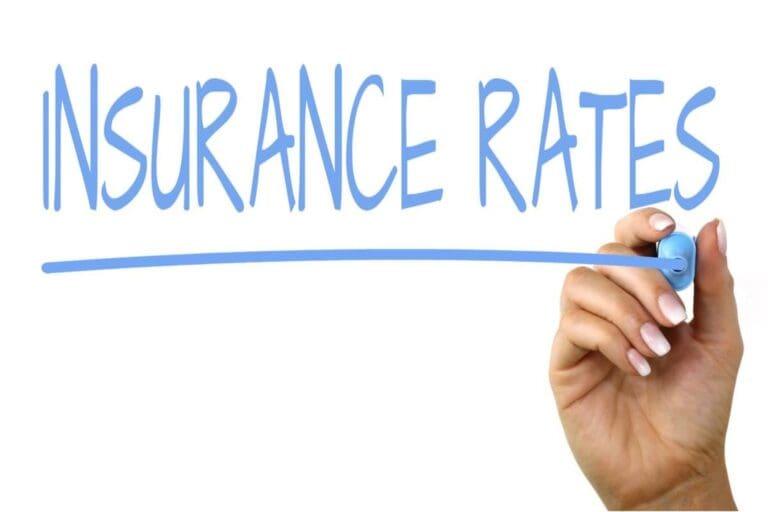 Hotel insurance is pivotal in safeguarding the financial well-being and smooth operations of hotels and other lodging establishments. As an industry that welcomes a diverse range of guests, the hospitality sector faces numerous risks and uncertainties daily. These risks include property damage, liability claims, business interruptions, and incidents involving guests.
Hotel insurance is pivotal in safeguarding the financial well-being and smooth operations of hotels and other lodging establishments. As an industry that welcomes a diverse range of guests, the hospitality sector faces numerous risks and uncertainties daily. These risks include property damage, liability claims, business interruptions, and incidents involving guests.
To mitigate these potential risks and protect their valuable assets, hotel owners and managers must secure comprehensive insurance coverage tailored to their needs. Therefore, here’s a detailed overview of hotel insurance, covering the key aspects that every hotelier should consider when assessing their insurance requirements, so make sure you check these things out ASAP.
Understanding hotel insurance
Hotel insurance is a specialized form of commercial property and liability insurance specifically designed to address the unique risks hotels face. It encompasses a range of coverage options that collectively provide comprehensive protection for the property and operations of a hotel.
These coverage options typically include property insurance, general liability insurance, workers’ compensation, business interruption insurance, different insurance claims, and more. Each policy component addresses different aspects of hotel operations, ensuring owners and managers are protected in unforeseen incidents.
Property insurance
Property insurance serves as the cornerstone of hotel insurance. It covers physical assets such as buildings, furnishings, equipment, and inventory against fire, theft, vandalism, and natural disasters. The financial reimbursement provided by property insurance enables hotels to swiftly recover from property damage and resume normal operations.
With the ever-present risk of unforeseen events, property insurance acts as a vital safeguard, providing the means to repair or replace damaged assets and protect the hotel’s financial stability. However, you don’t pay too much for your insurance, and be careful not to waste money on junk insurance. Just find out exactly what is junk insurance and what makes it so dangerous, so avoid it at all costs!
General liability insurance
General liability insurance is a crucial component of hotel insurance that protects hotels against third-party claims for bodily injury, property damage, or personal injury that may arise from accidents occurring on the hotel premises. Given the multitude of interactions between guests, visitors, and hotel staff, the risk of accidents cannot be overlooked.
General liability insurance covers legal defense costs, settlements, and judgments, ensuring that hotels are financially protected in case of lawsuits or claims arising from accidents or injuries on their property.
Workers’ compensation
Due to the labor-intensive nature of hotels, workers’ compensation insurance is an indispensable aspect of hotel insurance. This coverage ensures that employees are financially protected in the event of work-related injuries or illnesses.
Workers’ compensation insurance covers medical expenses, rehabilitation costs, and lost wages for employees who suffer injuries or illnesses while carrying out their duties. By providing this essential coverage, hotels demonstrate their commitment to the well-being of their workforce while minimizing potential legal and financial risks.
Business interruption insurance
Business interruption insurance is a vital component of hotel insurance that provides financial support to hotels during periods of temporary closure or operational disruptions caused by covered perils such as fire, natural disasters, or other unforeseen events. Such interruptions can significantly impact a hotel’s revenue stream and ongoing expenses.
Business interruption insurance helps hotels cover these expenses and mitigate the loss of income during the restoration period, ensuring business continuity and minimizing the financial strain caused by unexpected disruptions.
Cyber liability insurance
In today’s increasingly digital landscape, hotels are vulnerable to cyber threats and data breaches. Cyber liability insurance covers financial losses, legal expenses, and customer notification expenses resulting from cyber attacks.
With the rise of online bookings and the storage of sensitive guest information, the potential impact of a data breach on a hotel’s reputation and financial stability cannot be underestimated. Cyber liability insurance serves as a critical tool in protecting guest data, preserving the hotel’s reputation, and mitigating the financial consequences of a cyber incident.
Additional coverages
In addition to the core insurance components mentioned above, hotel owners and managers should evaluate their specific operations and consider additional coverages relevant to their needs. These additional coverages can include equipment breakdown coverage, which protects against the costs of repairing or replacing essential equipment, such as HVAC systems or kitchen appliances.
Employment practices liability insurance can safeguard against claims related to employment practices, including wrongful termination or discrimination. Event cancellation insurance can cover financial losses incurred due to the cancellation or postponement of planned events. By carefully assessing these additional coverages, hoteliers can ensure comprehensive insurance protection tailored to their unique circumstances.
Hotel insurance is an indispensable tool for mitigating risks and protecting the financial stability of hotels. Seeking guidance from insurance professionals specializing in the hospitality industry is crucial for securing comprehensive coverage and gaining the peace of mind necessary to focus on providing exceptional guest experiences. With the right insurance in place, hotels can navigate unforeseen challenges with confidence, ensuring the long-term success of their operations.


















